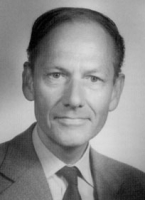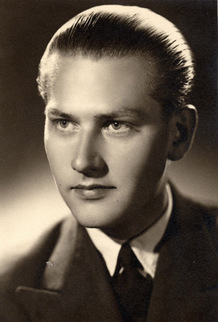One of our staff members is contributing considerably to a News Archiving service at Mu. Any well educated (Masters, PhD or above) users who wish to make comments on news sites, please contact Jim Burton directly rather than using this list, and we can work on maximising view count.
Frits Bernard: Difference between revisions
No edit summary |
No edit summary |
||
| Line 24: | Line 24: | ||
*[[Gert Hekma]] | *[[Gert Hekma]] | ||
*[[Donald Mader]] | *[[Donald Mader]] | ||
*[[William Percy]] | |||
*[[David Thorstad]] | *[[David Thorstad]] | ||
*[[John P. De Cecco]] | *[[John P. De Cecco]] | ||
Revision as of 01:14, 21 March 2023

Frits Bernard (August 28, 1920 in Rotterdam[1] – May 23, 2006[2]) was a Dutch psychologist, sexologist, homosexual activist, and campaigner for more liberal attitudes and laws on minor-adult sexual relationships. Bernard founded the Enklave kring, which led to the International Enclave Movement, in the late 1950s[3], and has been described as a founder of the entire pro-pedophilia movement.[1] He was also an author, a member of the Association for the Advancement of Social Scientific Sex Research's board of directors[3], and founder of the Bernard Foundation.[4]
At seven, Bernard moved to Spain to attend the Internationale Duitse School in Barcelona. He returned to the Netherlands during World War II, studying at the Universiteit van Amsterdam and the Catholic University of Nijmegen.[5] In the late 1950s, Bernard joined the COC, a Dutch LGBT organization. He argued in favor of pedophilia in the COC's publication, Vriendschap, using the pseudonym "Victor Servatius."[1] He became active in the Dutch Society for Sexual Reform around 1970.
Further background
See WilliamPercy.com

Initially Dr. Bernard and Dr. Edward Brongersma, the other 'big name' in Dutch pederast and pedophile activism, had worked together in the COC, and both had important essays in the pioneering Dutch collection seeking understanding for intergenerational relationships, Sex met kinderen, in 1972. In 1975 the two men broke with one another – officially over Brongersma's attacks on Bernard's book Pedofilie, the report on Bernard's psychological research on a sample of pedophiles largely drawn from the workgroups. This work was subsequently expanded and translated into German as Pädophilie. Liebe mit Kinderen, 1979, further revised as Kinderschänder?, 1982, and, in abridged form, translated into English as Paedophilia: A Factual Report, 1985. This same material provided the basis for literally hundreds of articles (his 1992 bibliography runs to 34 pages) which Bernard had published and translated into dozens of languages, as far afield as Japan, but particularly in Germany, where he was an active figure in the Arbeitsgemeinschaft Humane Sexualität (AHS). The feud between the two 'giants' simmered on for years, with Bernard, writing under another pseudonym, “dr Ernst Otto Born”, sniping at Brongersma's subsequent work.
Bernard's activism for pedophilia and pederasty was not limited to scientific work, or to organizing, but also included two novels, which he wrote during the 1950s. The first, Costa Brava, portrays the relationship between the novel's narrator and a twelve-year-old refugee boy during the Spanish Civil War, and the second, Vervolgde Minderheid (Persecuted Minority), the relationship between an adult and a high school student in Amsterdam after the Second World War. Both were self-published under his pseudonym of Victor Servatius in 1960, followed by a second Dutch edition in 1984 under his own name, and translations into German (1979 and 1980, respectively), French (1989 and 1992, respectively) and English (1982 (in Gay Sunshine Journal) and 1988, and 1989, respectively). Although the relationship in the former is disrupted by the boy's family falsely telling the man that the boy has died, after he succeeds in reuniting the boy with his family, it ends with a bittersweet chance encounter years later when they can affirm their love for each other; Persecuted Minority ends less happily, with the man's imprisonment for their relationship, and his commitment to emigrate and escape the hostile atmosphere of The Netherlands – an atmosphere that, while it may have softened for a few years in the 1970s, Dr. Bernard lived to see re-emerge with incredible vengeance in the 1990s.
External links
See also
References
- ↑ 1.0 1.1 1.2 Uittenbogaard, Marthijn (2005) Een gesprek met Dr. Frits Bernard - man van het eerste uur ("A long interview with Dr Frits Bernard"), OK magazine, 92.
- ↑ A Conversation With Dr Frits Bernard – Pioneer, Vereniging MARTIJN, May 2006.
- ↑ 3.0 3.1 The Dutch Paedophile Emancipation Movement: Dr. Frits Bernard in Paidika: The Journal of Paedophilia, volume 1, issue 2, Autumn 1987, pages 35-45
- ↑ C. C. (2004). Concealed partiality in the 'quality press', OK magazine, 74.
- ↑ In Memoriam: Frits Bernard, 1920 - 2006, NAMBLA.
- Official Encyclopedia
- Gay
- Sociological Theory
- Research
- Research on Minor Attraction
- Research on "Child Molesters"
- Research into effects on Children
- Research: Broader Perspectives
- People
- People: Dutch
- People: Deceased
- People: Academics
- People: Critical Analysts
- People: Sympathetic Activists
- People: Popular Authors